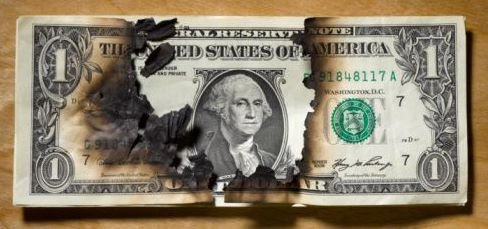
I was reading an article the other day. It was talking about the latest rise and falls in the US Dollar and what was driving traders to buy and sell it.
It talked at some length about a lot of things that made a difference to its value against other currencies, things that were happening in both in the US and overseas.
Some of these things were interesting, like how traders in the market liked something that Angela Merkel had just said in Berlin and were looking more favorably on the Euro currency as a result. Another factor was that people had heard the UK government had decided not to increase its base rate. Someone else was saying that in New York the markets didn’t like an off-hand comment made by somebody in the Treasury, as they thought it might indicate ‘XYZ’ or ‘ABC’ etc etc etc.
As a result of this, the dollar (and I guess other currencies) went up and down against each other.
So what?, you might be asking.
Well, the efforts to get profit out of betting and trading currencies against each other is that it can have a huge effect, often negative, on the overall economy of the country concerned. For example, if the dollar’s strong against other currencies then it makes it harder for people to buy goods we produce here and more cost-effective for them to buy elsewhere.
That might be balanced a bit by the dollar buying international raw materials a little more cheaply. Of course, these generic factors might be reversed if the dollar was having a weak period.
Once again, you might say “so what”? If the US economy’s doing well, why shouldn’t our currency be stronger? If it’s not so good and people don’t want to buy many dollars then equally fine, our currency will be down a bit. Maybe it’s all no big deal?
Well, the problem is this – the currency rates relative to each other often don’t reflect anything to do with the underlying health of the economy concerned. What they reflect is dealer greed and opportunistic manipulation of the currency markets. You know the sort of thing, where people are trying to push down the value of a currency by mass selling in order to buy it back more cheaply later on and make a killing as a result.
So, even though the economy’s weak to the point of being almost on its knees, the dollar might be soaring or vice-versa.
This isn’t just fancy financial market esotericism. It affects many of us big-time.
Take a hypothetical highly specialized high-tech company manufacturing in California. Their biggest customer is in Germany but margins are tight and they’re fighting hard to survive against competition from Japan.
One weekend, a group of financial institutions, who trade currencies in NYC during the week, have a chat over the post-tennis champagne. They reckon there’s profit to be made by driving the value of the dollar up against the Euro in the weeks ahead. They get started the next Monday morning.
Very quickly, the guys in California find their price to their German customer has just gone up 8% and for reasons they’ve no control over. It’s pushed their German client over the edge and they’re now going to start buying from Japan.
The Californians wonder about whether to close their plant now with mass firings or hang on for a few more weeks. While doing so, they read in the papers lots of flag-waving stuff about how the markets are voting positively for the dollar and that means that the US can be proud of its economy again.
Of course, in a few weeks’ time, those same institutions in NYC will start to dump the dollar in order to make their profits. Then the news will be full of stories about how the economy’s maybe not in such good shape after all.
Yes, OK, those Californians could have insulated themselves a bit by taking out future contracts and all that sort of stuff.
The point here is that, currency which simply a means to settle debt and payment has become commodity That was never the purpose of a currency is meant to settle trade not be traded itself. Nonetheless, it is a reality of everyday business and results in convoluted outcomes like the British Mad Cow fiasco where herbivores were fed meat resulting in the animals losing their minds.
Currency movements against each other have a direct effect on the economy and ordinary everyday businesses. It would be nice to think that those movements were controlled by something other than the greed, exploitation and profit-at-all-costs mentality of a few traders in places like NYC, London and Frankfurt.
Maybe one day we’ll identify a way of changing things.







